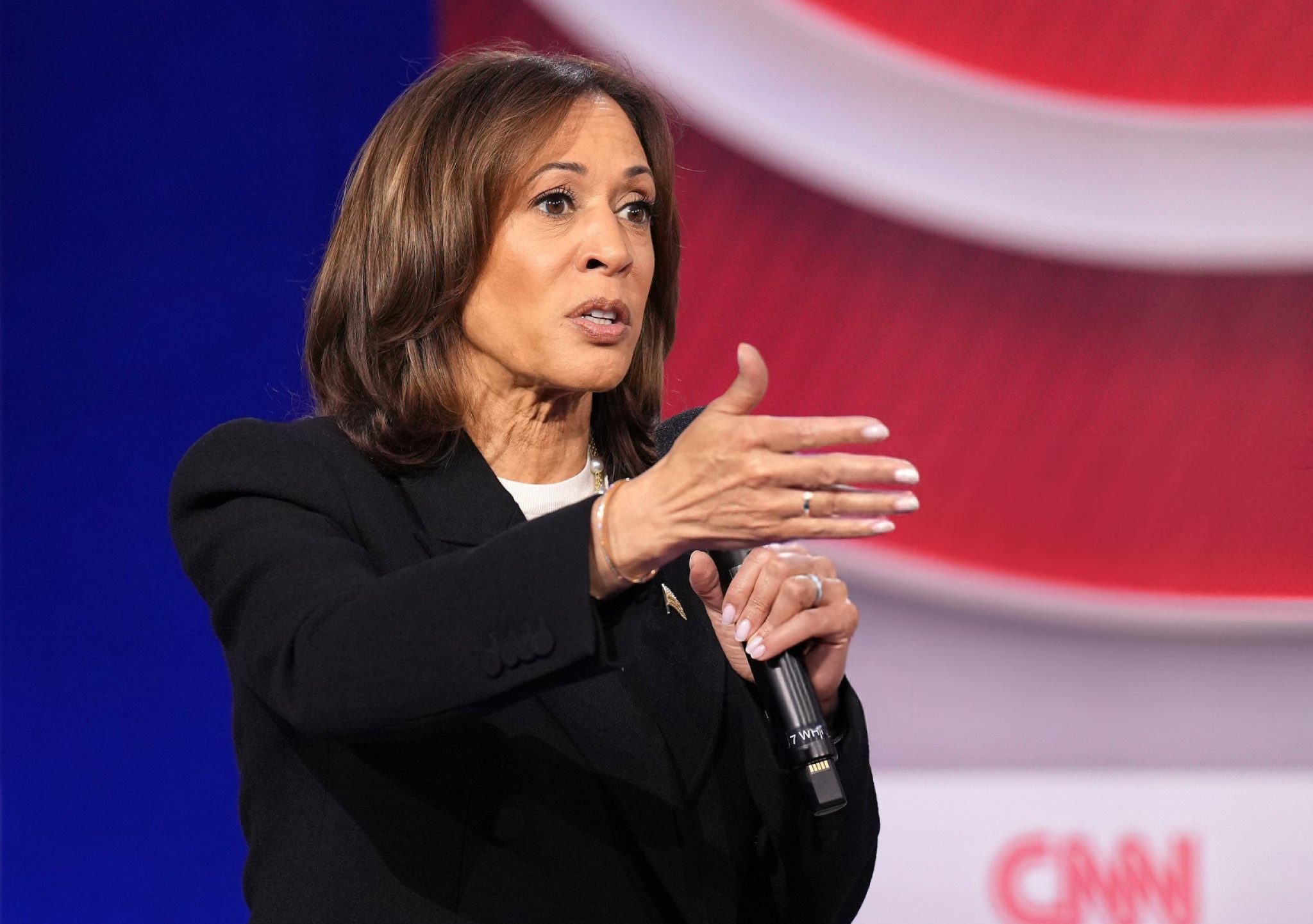As tens of millions of Americans cast their ballots in the 2024 presidential election, the Kamala Harris campaign expressed optimism about early voting trends in key battleground states, particularly Pennsylvania. With the Keystone State’s 19 electoral votes at stake, Pennsylvania has become a pivotal focus, and Harris made a final push to connect with voters, even going door-to-door in residential areas on the eve of Election Day.
“Listen, we feel good about what we’re seeing in Pennsylvania and across the battleground states,” said Michael Tyler, Harris’ communications director. “When you look at the early vote data, there’s clearly been a mode shift.” Tyler noted that, historically, Republicans were less inclined toward early voting, often expressing skepticism about the process. “They used to disparage early voting and claim it was prone to fraud, but now they’ve embraced it and are encouraging their voters to participate early,” Tyler explained, pointing to a shift in strategy among the GOP.
Pennsylvania, with its large population and deep-rooted electoral significance, has emerged as the most crucial of the seven swing states this year. The Harris campaign has been particularly focused on energizing turnout here, with reports indicating that nearly 100,000 doors were knocked on Monday alone. Harris, whose mother was of Indian origin, is facing off against Republican candidate Donald Trump in a tight race, both vying for the chance to succeed current President Joe Biden in the White House.
Over the past few weeks, Harris has zeroed in on Pennsylvania, Michigan, and Wisconsin—states commonly associated with the Democratic “Blue Wall.” These states, representing a combined total of 44 electoral votes, were key to Biden’s victory in 2020. If Harris can hold onto these states, she would be well-positioned to claim victory in the election. Notably, if all other states continue to vote along historical party lines, these 44 votes could make all the difference in securing Harris the presidency.
In the United States, each of the 50 states holds a certain number of electoral votes based on its population, with a total of 538 electoral votes up for grabs. A candidate must secure at least 270 electoral votes to win the presidency. Typically, most states vote consistently for the same party in each election cycle, with only a few designated as “swing states” or “battlegrounds” where both parties stand a chance of victory. This year, the seven swing states, which include the Rust Belt trio of Pennsylvania, Michigan, and Wisconsin, will likely determine the election’s outcome.
Should both Harris and Trump win all the states that have historically backed their respective parties, Harris would remain 44 electoral votes short of victory, while Trump would need 51. In this case, the 93 electoral votes tied to the battleground states would be the deciding factor in who ultimately wins the White House. Harris’ team remains focused on mobilizing voters in the Rust Belt states, especially in Pennsylvania, which had swung to Trump in 2016 but returned to the Democratic fold in 2020.
The Rust Belt—Pennsylvania, Michigan, and Wisconsin—has long been considered a Democratic stronghold, though Trump’s win in 2016 demonstrated how quickly voter allegiance can shift. In 2020, Biden reclaimed these states for the Democrats, rebuilding the “Blue Wall” that played a decisive role in his victory. Harris is banking on holding onto this coalition and mobilizing voters in areas historically supportive of Democratic policies and ideals.
In addition to the Rust Belt, the four states of Arizona, Georgia, Nevada, and North Carolina—collectively known as the Sun Belt—are also hotly contested, carrying a combined total of 49 electoral votes. Historically, these states lean more Republican, yet they have become increasingly competitive as shifting demographics and changing political views have reshaped the region. Even if Trump wins all four of these Sun Belt states, he would still need at least one additional Rust Belt state to secure victory, highlighting the importance of Pennsylvania and its neighboring battlegrounds.
The 2024 election has seen unprecedented voter turnout, largely fueled by intense polarization and widespread enthusiasm for both candidates. Early voting has been at record levels, and analysts predict that the high engagement will continue through Election Day. Harris’ campaign team believes the early voting data is indicative of Democratic strength in key states, with many voters motivated by economic concerns, healthcare, and social issues.
For now, all eyes remain on Pennsylvania. As Harris continues to campaign there and in other battleground states, her team is hopeful that the energy and enthusiasm among early voters will translate into a victory on Election Day. Both Harris and Trump are pulling out all the stops in these final hours, understanding that the path to the White House runs through the battleground states—none more critical than Pennsylvania.







